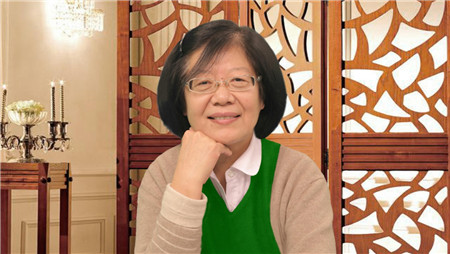
In the modern time, we’ve followed the rules and criterions set by foreigners for such a long time that some of our culture and standard for aesthetics fade away. We witnessed Beijing rising to be an international city with skyscrapers, shopping plazas and highways. However, with those courtyards put down, it’s getting harder and harder to recognize its face.
“Saving the architecture is saving the history. Fewer and fewer people have time and linguistic ability to learn history from books. So those standing buildings that carry the history alive are priceless. Rome cherishes colosseum though some part is collapsed. Athens treasures Parthenon Temple though it was once destroyed by fire. The truly civilized citizens protect the old buildings as they respect their own history, while some trash them as if they were scars from the past.” Not everyone agrees with Han on this topic. They are overwhelmed by the housing price and worried that more social problems will pop out if we insist on protecting those courtyards that locate in the central areas of Beijing. Han smiled and said that those with thoughts like that should learn some history. “The shockingly high price for houses is not caused by protecting the quadrangle courtyards. On the contrary, it is the result of not protecting them. Those courtyards had accommodated generations of people in the area from birth to death. When the wrecking balls smashed all the walls, we opened the Pandora’s box for those contractors. The government now is planning for Xiong' an New Area and pulling the non-capital function modules out of Beijing, which sounds like echoing of the proposal made by Liang Sicheng decades ago. Ironic, isn’t it?”
Han pointed out that learning and protecting history not only is for remembering or showing off, but more is to learn from the past and head for the future. “Human society evolves in a way of a helix. We worship the wisdom of our ancestors to keep the harmony between human and nature, and somehow, that may be the key to help us survive. Although the technology has reached a climax beyond imagination in ancient times, we are surprised to find scenarios from history to tackle the problems of today.” In an international meeting about climate change, some western scholars accused that though China releases less carbon dioxide than those countries that were industrialized much earlier, for a much longer time of agricultural civilization, plants of Chinese main food like rice release methane that could cause a more serious greenhouse effect. Han shut those up by pointing out that based on the Chinese ancient documents and analysis of GIS, the plants which grew naturally in the places we then reclaimed for agriculture release methane as well, so actually no more emission was caused. “Some may never think that history can work this way.”
Han added that it is disappointing that we followed the trace of western countries in the modern age, and it is more disappointing that we track and imitate in academic researches nowadays lacking original works. “It is valuable to learn the theories and paradigms of universality brought up by western scholars. It is worthless to put some local data into the formulas or frameworks, which were created based on foreign data and aimed to deal with some unique problem, and made piles of papers on the result. We should work out our own way, whether a formula or framework, to knock down our own problems for good. It is our history that makes the country special, and it is the responsibility for us to dig into it and dig out some treasure. Believe it or not, western scholars covet our history more than our people. Sad, isn’t it?”
What is happening today will become history for the future. When asked what she will leave for subsequent scholars, Han smiled and said that scholars in the future will be lucky, and it will be much easier to reach database for we document them with nowadays technologies. “I am working on building the database for our ancient history, a giant project. When the root is nourished, flowers will blossom.”
Reference:
Han Maoli, professor of Historical Geographic Center of College of Urban and Environmental Sciences, Peking Universty, mainly research on Chinese historical human geography and environmental change. She had hosted a number of national social science foundation, national natural science foundation and national education commission fund project. Her major works are Agricultural Geography in the Song Dynasty, Agricultural Geography in the Liao and Jin Dynasty, Grassland and Pastoral——Agriculture,Animal Husbandry and Environment in the West Liaohe River Basin during Liao and Jin Dynasty, Chinese Historical Geography, etc.
Reported by: Tian Gang
Edited by: Zhang Jiang